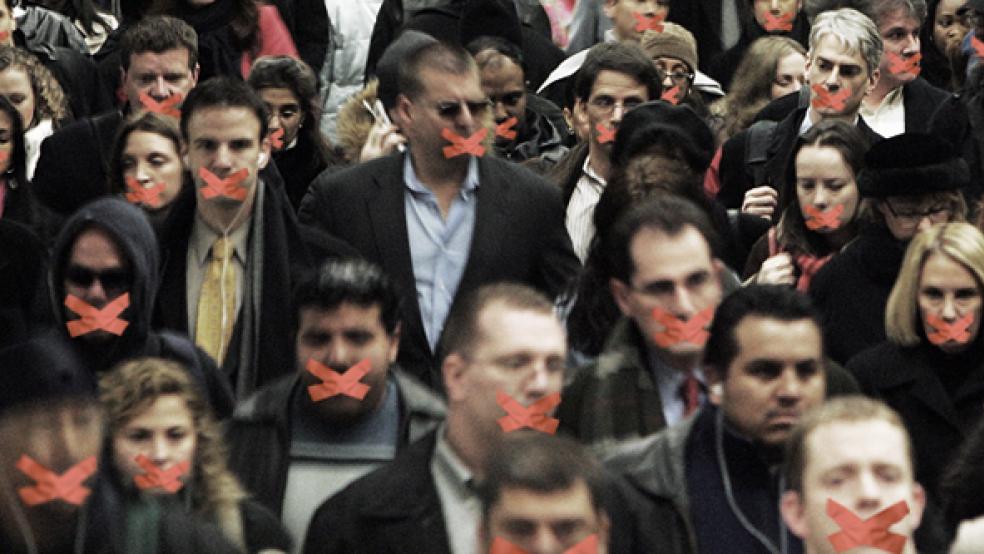President Obama and the Democrats in Congress have manufactured a battleground – us versus them – the one percent who are wealthy versus the ninety-nine percent who are not. Obama has stoked anger at the GOP and anger at our highest earners. He hopes his leadership failures will be drowned out by his class warfare campaign. He may be right, but what an awful toll the protests and disruptions take. The nation has not seen this level of vitriol and discord since the 1960s. The protests then were about the Vietnam War; resolving our debt crisis by comparison seems a walk in the park.
The real “99 percent” is the number of Americans disgusted by the failure of the so-called “Super Committee.” We do not need Standard & Poor’s to tell us we must get our government spending under control – no one imagines that owing $15 trillion is the road to success. Few believe that having our debt level quickly approaching our GDP – and the level that threatens the solvency of nations -- is the path to prosperity.
The real "99 percent" is embarrassed by warnings from China’s foremost ratings agency that it may again downgrade U.S. debt. The head of that organization will be heard on Al-Jazeera in coming days forecasting the U.S. will have to “depreciate the U.S. dollar, to print more money.” Guan Jianzhong says in the interview, “This has affected their credit, and it is negatively affecting their credit prospects so that their overall ability to pay back their debt will continue to go down.”
Echoing that critique, China’s official news agency described the breakdown in the Super Committee as a “miscarriage,” saying further that it shows the U.S. unable to “step up and shoulder its responsibility.” No one thinks that owing China more than one trillion dollars improves our leverage with that ambitious country, or allows us the freedom to confront China’s ever-greater aggression.
Ninety-nine percent is the number of Americans who do not think it is impossible to pare 3 percent from our swollen government outlays. The United States will spend over $2 trillion this year; spending has doubled since 2000. In 2007, the deficit was 1.2% of GDP; this year it will be about 9%. The deficit committee was asked to slice $120 billion from our budget in each of the next ten years – it doesn’t seem so difficult. Senator Tom Coburn issued a report this year entitled Back in Black that eliminated $9 trillion from the federal budget over ten years – in entirely sensible ways such as abandoning duplicative and unproductive programs.
Cutting spending is only difficult if the participants make it so -- if nothing is on the table, everything is off the table. It is also probably more difficult if the people charged with the negotiations never actually meet. The report that the committee did not convene during the month of November makes the 99 percent shake their heads.
It is only difficult if political posturing takes precedent over the needs of the nation, and if there is no leadership from the top. President Obama has yet to sully his hands with our nation’s most pressing issue. When he personally asked Alan Simpson and Erskine Bowles to preside over a bipartisan commission to right our nation’s fiscal ship, they delivered a thoughtful, comprehensive and sane starting point from which Congress should have begun to slowly rebuild our financial future. President Obama had left town. Similarly, he was out of town during the last stages of the super committee negotiations. There’s a pattern here, and it isn’t pretty.
President Obama knows that the only way to get our deficits under control is to reform Medicare and Social Security. Earlier this year, the president said, “Medicare…will run out of money, and we will not be able to sustain that program no matter how much taxes go up.” Medicare’s unfunded liability is $37 trillion. That isn’t an imaginary number; that is how much it will take to pay for the promises already made. Obama will not put his political capital at risk by signing onto reforms. Pressed by ABC’s Jake Tapper this summer to identify one change he would be willing to make to our doomed entitlements programs, Mr. Obama came up empty.
Ninety-nine percent is the number of Americans who think that police departments across the country have better things to do than ride herd on the OWS mob. Cities and states nationwide are in trouble. Tax revenues have fallen while outlays have increased because of the recession. Officials from both sides of the aisles are making tough choices – the kind of choices Congress has been unwilling to make -- closing libraries, laying off teachers, retiring firehouses and shrinking police forces. Who wants to spend tens of millions of dollars to keep protestors from preventing hard-working Americans from getting to their jobs, from defacing public property and creating a public nuisance? The arrest of yet another possible terrorist in New York this week casts this issue in sharp relief.
Ninety-nine percent is the number of Americans who insist on real improvement in our nation’s public schools, who want sensible immigration reform, who would prefer that the highly talented foreigners educated by American universities be allowed to stay and enrich our communities. There are so many issues that need to be addressed. Instead, we face an entire year of political maneuvering ahead – of “gotcha” moments and backbiting. Ninety- nine percent is the number of Americans disgusted at the prospect.






